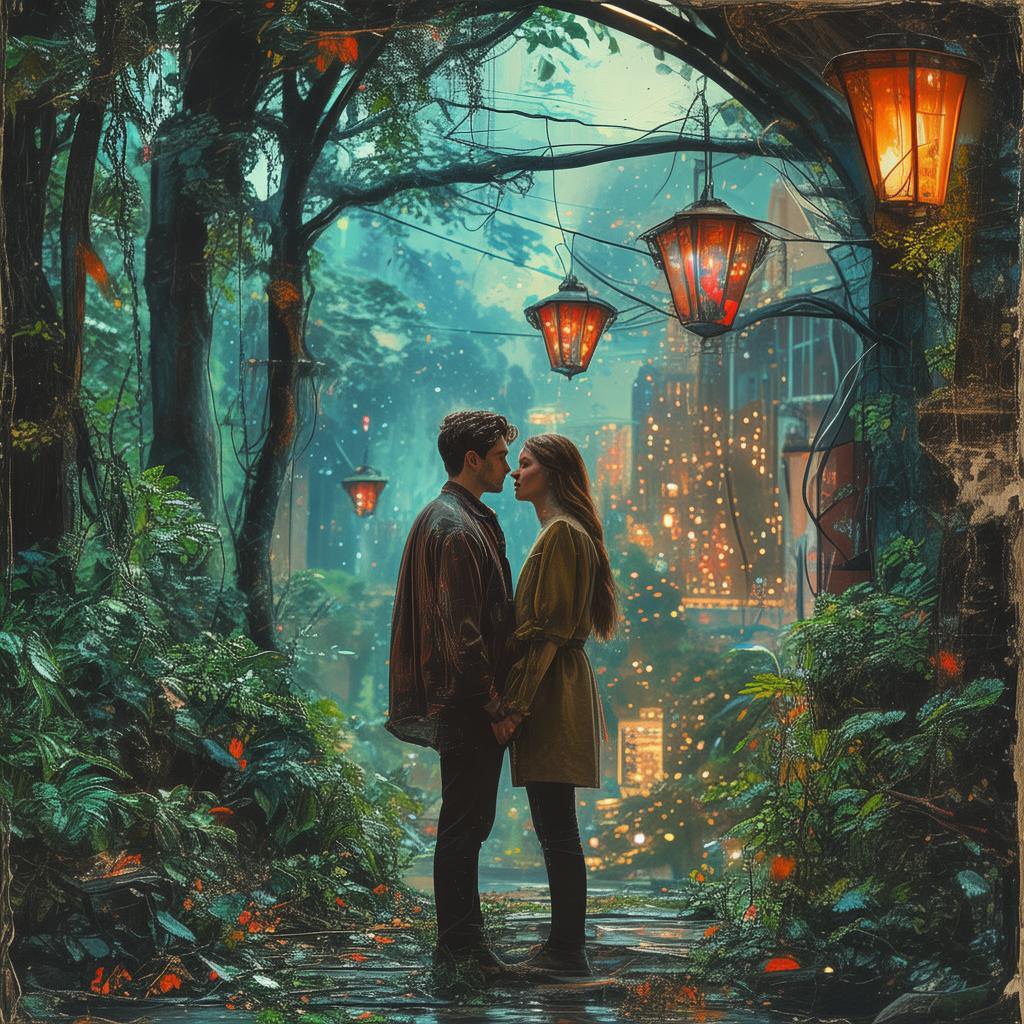The Labyrinthine Love of Socrates and Diotima
In the heart of ancient Athens, under the watchful gaze of the Parthenon, there walked a philosopher whose wisdom was as vast as the Aegean Sea. His name was Socrates, and his teachings were as revolutionary as they were misunderstood. Amidst the bustling marketplaces and the echoes of the agora, Socrates encountered a woman whose life was a tapestry woven from the threads of mysticism and wisdom. Her name was Diotima, and she was no ordinary woman.
One evening, as the sun dipped below the horizon, casting long shadows over the city, Socrates found himself in the presence of Diotima, a mystic and a philosopher in her own right. The conversation that ensued would unravel the very fabric of Socrates' understanding of love and the human soul.
"The nature of love, Socrates," Diotima began, her voice as soothing as the gentle breeze that whispered through the olive groves, "is not as simple as you might believe. It is a journey, a labyrinth, and the one who seeks it must be prepared to lose himself in the pursuit."
Socrates, intrigued by her words, leaned forward, his eyes reflecting the fire of curiosity. "A labyrinth, Diotima? What do you mean?"
Diotima smiled, her eyes twinkling with the light of ancient knowledge. "The labyrinth is the path of love. It is a journey that begins with eros, the love of the body, and ends with agape, the love of the divine. It is a journey that requires courage, patience, and a willingness to face the darkest corners of the soul."
Socrates listened intently, his mind racing with questions. "And what of the soul? How does it fit into this labyrinth?"

Diotima's eyes softened, and she reached out, her fingers tracing the outline of a labyrinth on the ground. "The soul is the guide, the one who navigates the labyrinth. It is the part of us that seeks understanding, that seeks to know the truth. The soul is the essence of who we are, and it is through the labyrinth of love that we come to know ourselves."
As the night wore on, Socrates and Diotima delved deeper into the mysteries of love. They spoke of the trials and tribulations of eros, the fiery passion that can consume and destroy. They spoke of the joys and sorrows of philia, the love of friendship, and the trials of pragma, the love of duty.
But it was the third form of love, agape, that captivated Socrates. "Tell me more, Diotima," he urged, "of this agape, this love that transcends all others."
Diotima's eyes grew serious, and she leaned closer. "Agape is the highest form of love. It is the love that does not seek anything in return. It is the love that is born of the soul and seeks to understand and to unite with the divine. It is the love that is patient, kind, and never fails."
Socrates, moved by her words, asked, "And how do we attain this agape?"
Diotima's eyes softened, and she took Socrates' hand. "We attain agape by losing ourselves in the pursuit of love. We must be willing to face the darkest corners of our soul, to confront our fears and our flaws. We must be willing to let go of our ego and to embrace the unity of the soul."
As the night drew to a close, Socrates felt a profound sense of transformation. He realized that the journey of love was not a journey of the body, but a journey of the soul. It was a journey that required him to let go of his own desires and to seek the truth within.
The next day, Socrates returned to the agora, his heart filled with a new understanding of love. He shared his revelation with his students, and their eyes were opened to the true nature of love.
In the end, Socrates and Diotima's conversation was more than a mere philosophical debate; it was a revelation that changed the course of history. It was a revelation that taught us that love is not just a feeling, but a journey. It is a journey that begins with eros and ends with agape, a journey that requires us to lose ourselves in the pursuit of truth and unity.
And so, in the heart of ancient Athens, a philosopher and a mystic navigated the labyrinthine path of love and philosophy, leading to a profound revelation about the nature of love and self.
✨ Original Statement ✨
All articles published on this website (including but not limited to text, images, videos, and other content) are original or authorized for reposting and are protected by relevant laws. Without the explicit written permission of this website, no individual or organization may copy, modify, repost, or use the content for commercial purposes.
If you need to quote or cooperate, please contact this site for authorization. We reserve the right to pursue legal responsibility for any unauthorized use.
Hereby declared.









